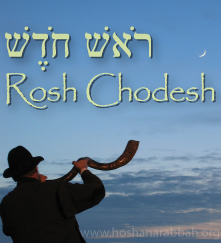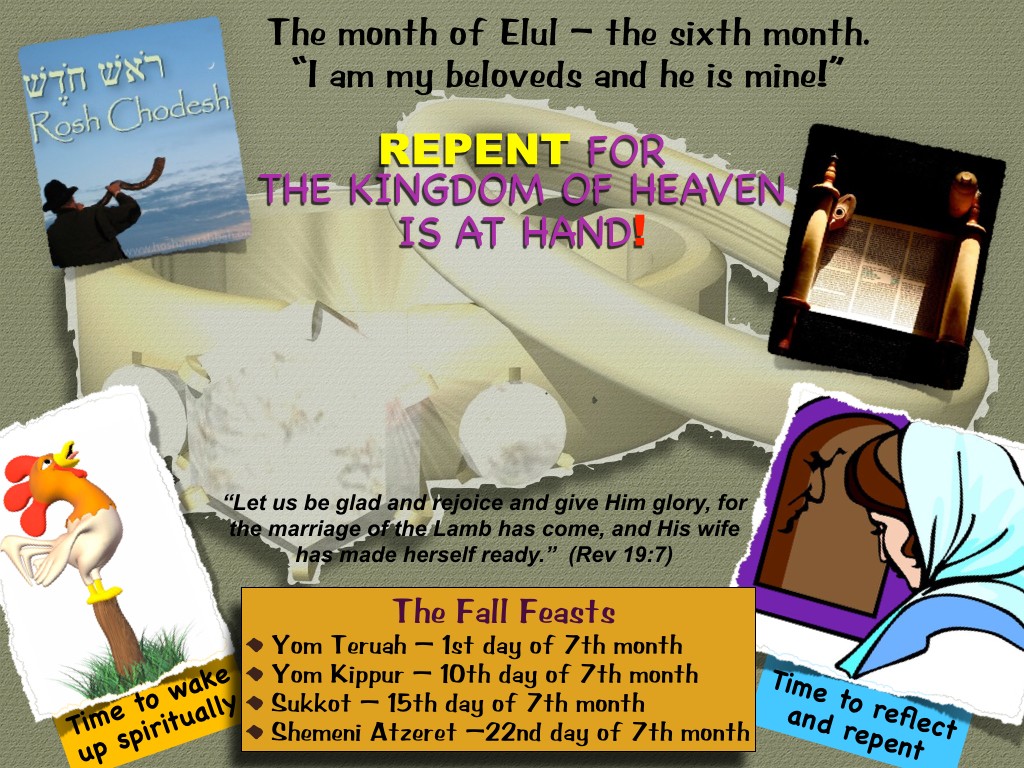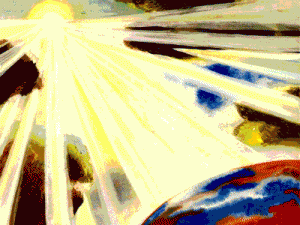The new moon was not spotted in the land of Israel yesterday (Monday, Sept 14), which means tonight (Tuesday, Sept 15) will mark the beginning of the seventh month on the biblical calendar. This day also marks the beginning of the fall biblical feast season. HalleluYAH! Time to celebrate. It’s all good news, which we need in these dark times!
Yom Teruah (or the Day of Shouting/Shofar Blasts) is the biblical name for the traditional the Jewish holiday of Rosh Hashanah) is on the first day of the seventh month (Lev 23:23–25). This is a high holy sabbath day.
On the tenth day of the seventh month will be Yom Kippur (the Day of Atonement, Lev 23:26–32).This year, it will be on Friday, Sep 25. This too is a high holy sabbath day.
Next, from the 15th to the 21st day of the seventh month (Sept 30 to Oct 6) will be Sukkot (the Feast of Tabernacles, Lev 23:33–43).
Finally, at the end of Sukkot will be an additional holiday called Shemeni Atzeret (or the Eighth Day, Lev 23:36, occurring on Oct 7). Hebrew roots and messianic people often overlook this high holy day sabbath, but it’s part of the Torah, and so we celebrate it.
All of these festivals are significant spiritually for the redeemed believer and are steps in YHVH’s plan of salvation. The fall feasts are also prophetic of events that will happen prior to and after the second coming of our beloved Messiah Yeshua.
For written instructional materials on these feasts, please go to http://www.hoshanarabbah.org/teaching.html#feast. For videos teachings about these feasts, go to our YouTube channel at https://www.youtube.com/user/HoshanaRabbah.
You may wonder why some people are celebrating these feasts on other days than the ones mentioned above. There are several reasons for this. I’ll briefly explain.
The rabbinic and orthodox Jews will be celebrating their feasts two days earlier. This is because their calendar is usually incongruent with occurrence of the visible new moon. How did they get off the biblical calendar, you might ask? For the answer to this questions, please read my article at http://www.hoshanarabbah.org/pdfs/new_moons.pdf.
Some people keep the biblical feasts on the astronomical new moon conjunctions, which is not the biblical way to determine the months. I explain this in the following article at http://www.hoshanarabbah.org/pdfs/vis_moon.pdf.
If you want a comprehensive understanding of the biblical calendar please read the following article at http://www.hoshanarabbah.org/pdfs/cal_demyst.pdf.
It’s important that we understand the biblical calendar issues, since there is a lot of confusion out there on the subject. Also, YHVH calls his feasts moedim or divine appointments, for it is then that he meets with his people. It’s important to do so when he has told us to do so, not when we choose to so.
Get a cup of tea or coffee, find a comfortable chair and prop up your feet and get to reading on the subject of the biblical calendar. We have provide you some simple to understand resources to understand this subject. You’ll need to concentrate though and have your Bible handy so you can look up the verses yourself and prove that what we’re saying is the truth. You might need to read over some of the material a couple of times to wrap your brain around the concepts. I’ve tried to make it as simple as possible. It’s really not that bad. Once you understand it, you’ll have a firm foundations from which to go onward and upward in YHVH’s truth.
Understanding the biblical calendar and knowing when to keep the biblical feasts is part of the restoration of all things that must occur in conjunction with Yeshua’s second coming (Acts 3:21). By obeying YHVH and keeping his feasts on the calendar he established, you are part of the fulfilling of Bible prophecy and are helping to hasten Yeshua’s coming.





